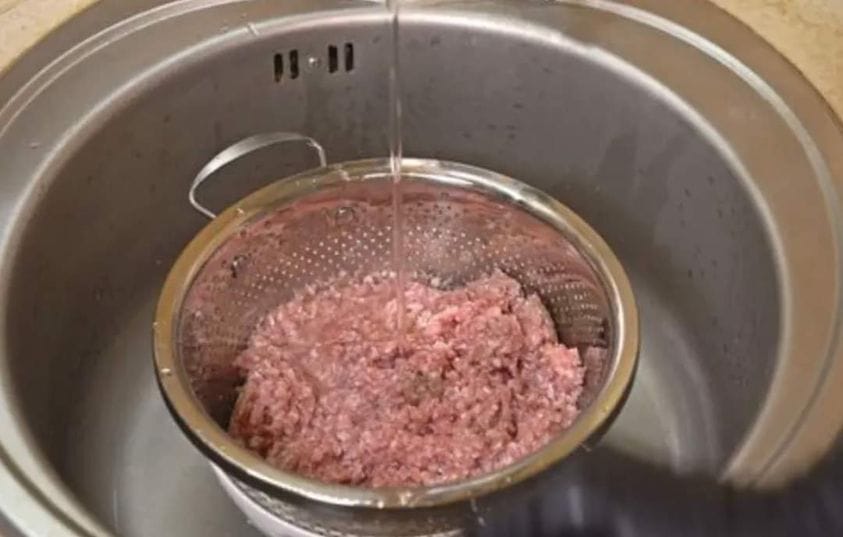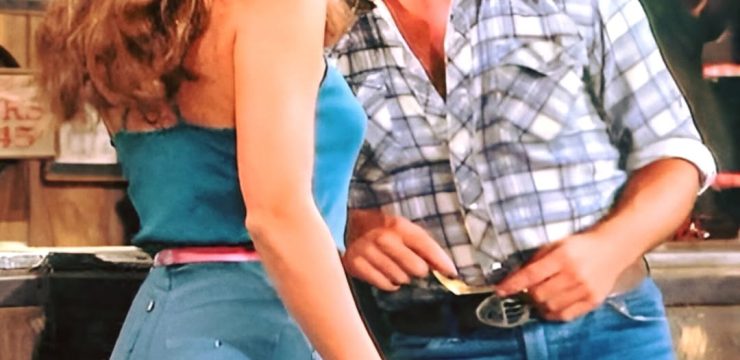When it comes to cooking ground beef, one question often sparks debate among home cooks: Should you rinse ground beef before or after cooking? It’s a topic that brings out strong opinions, as both sides have valid arguments. In this article, we’ll explore the reasons for and against rinsing ground beef, along with some practical considerations to help you decide what’s best for your kitchen.

The Argument for Rinsing Ground Beef
Some home cooks believe that rinsing ground beef, especially after it’s cooked, is an effective way to reduce fat content. This approach is popular among those trying to cut back on calories or avoid greasy foods. Ground beef, particularly the fattier varieties like 80/20 or 70/30, can leave behind a lot of fat when cooked. By rinsing it under hot water in a colander, you can wash away some of the melted fat, making the beef lighter and less oily.
For those aiming to maintain a low-fat diet, this method can make a noticeable difference. It’s also helpful for people with specific dietary needs, such as those managing heart health or trying to lose weight. Lowering the fat content can make ground beef fit more easily into calorie-conscious meals, like tacos, pasta sauces, or casseroles, without compromising nutritional goals.
Another reason some opt to rinse ground beef is to tone down its “beefy” flavor. Rinsing can reduce some of the rich, meaty taste that might be too strong for sensitive palates. This approach can make dishes more appealing to picky eaters, especially children who prefer milder flavors.
@madinahskitchen Washing ground beef #food #foodtiktok #cooking #cookingtiktok #beef #bussin ♬ Wii – Mii Channel – Super Guitar Bros
The Argument Against Rinsing Ground Beef
On the flip side, many cooks and chefs argue that rinsing ground beef does more harm than good. The primary criticism is that it not only washes away fat but also strips the meat of flavor. Fat acts as a key flavor component in many recipes, giving dishes like chili, meatloaf, and burgers their savory richness. When you rinse it off, you risk making the final dish less flavorful and less juicy.
Rinsing ground beef can also result in a drier texture. The fat in ground beef helps retain moisture as it cooks. By removing it through rinsing, you might end up with dry, crumbly meat that doesn’t hold together well in dishes like meatballs or burgers. In other words, while rinsing may reduce calories, it can compromise the overall taste and quality of your meal.
For those focused on flavor, using leaner ground beef—like 90/10 or 93/7—is a better alternative to rinsing. These leaner cuts contain less fat from the start, making them a healthier option without sacrificing moisture and taste. Simply drain the fat after cooking for a balanced approach that keeps the meat flavorful.
Mess and Plumbing Concerns
Beyond the taste debate, rinsing ground beef can create a messy situation in the kitchen. When you transfer cooked beef to a colander and rinse it with hot water, grease can splash around the sink, making cleanup more tedious. This not only increases the chances of burns from hot grease splatters but also adds extra work to your cooking process.
Additionally, rinsing ground beef can pose plumbing risks. Pouring grease down the drain, even when mixed with water, can lead to serious clogs over time. As the fat cools, it solidifies and can block pipes, leading to slow drainage and potentially costly repairs. The best way to avoid this issue is to let the fat cool and solidify in the pan or in a separate container before scraping it into the trash.
To dispose of fat safely, consider placing it in an old can or container, allowing it to harden before throwing it away. This method keeps your sink clear of grease and minimizes environmental impact.
A Personal Choice
Ultimately, whether or not to rinse ground beef comes down to personal preference and cooking goals. If you’re aiming for a lower-fat meal and don’t mind a slight reduction in flavor and moisture, rinsing can be a reasonable option. However, if you prioritize taste, juiciness, and texture, it might be best to skip the rinse and embrace the natural richness of ground beef.
Experimentation is the key to finding what works best for you. Try cooking ground beef both ways to see which method aligns more with your taste and dietary needs. Whether you choose to rinse or not, the most important thing is to enjoy the meal you’re preparing.
Final Thoughts
The decision to rinse ground beef isn’t just about fat content—it’s about balancing flavor, texture, and convenience. Both approaches have their pros and cons, so it’s worth considering your personal health goals, taste preferences, and kitchen logistics when deciding what to do.
No matter which method you choose, the end goal is the same: to create a delicious, satisfying dish that suits your palate and nutritional needs. Next time you cook with ground beef, remember that there’s no right or wrong answer—just the approach that works best for you. Happy cooking!





